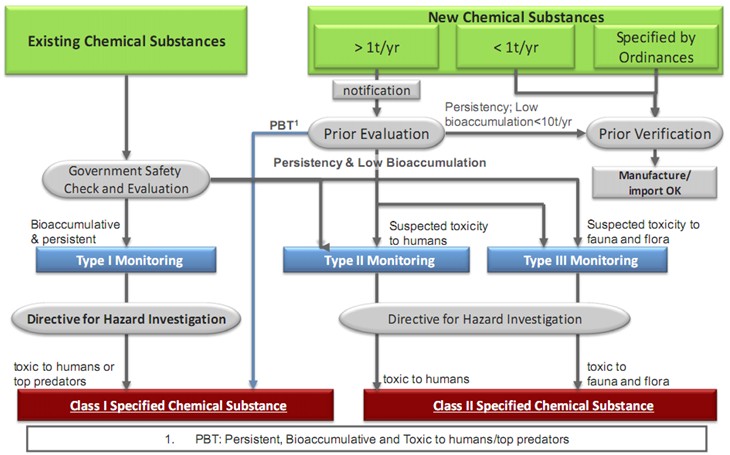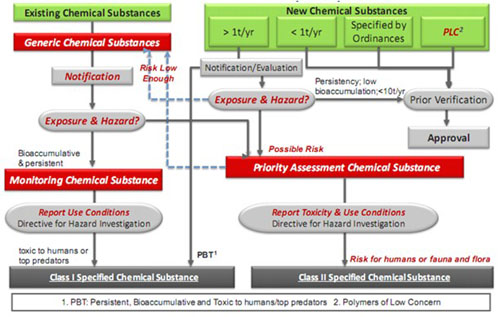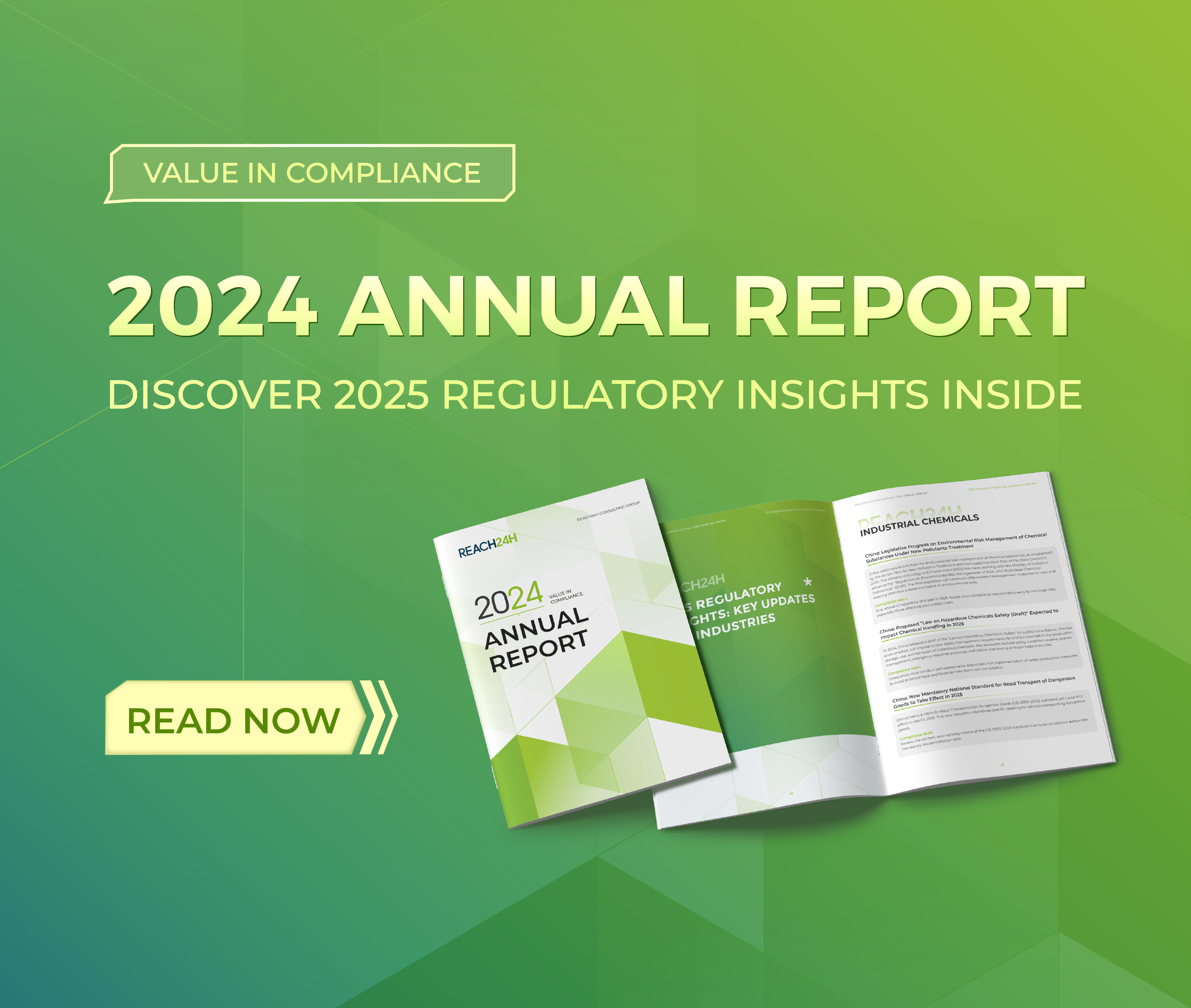The Amended Japanese Chemical substances Control Law
First Phase of Amendment (Enacted on April 1st, 2010-the current version)
(a) Not persistent substances will be included
In addition to “chemical substances which is persistent in the environment”, which have been under control, “chemical substances which is not persistent in the environment” are regulated in the amended law.
(b) Confirmation System for Polymers of Low Concern
Polymers of Low Concern (PLCs) will be exempted from mandatory notification of manufactureand import for new chemical substances and will become subject to confirmation based on existing knowledge.
(c) Information Delivery in the Supply Chain
(d) Measures concerning Class I Specified Chemical Substances
(e) Measures concerning Class II Specified Chemical Substances
(f) Other Measures (notification for other laws and ordinances relevant)
Second Phase of Amendment (Enacted on April 1st, 2011)
(a) Notification of the amount of manufacturing or import for general chemical substances
(b) Priority Assessment Chemical Substances (New Category)
(c) Handling of the Monitoring Chemical Substances
Current Classification Scheme
|
Classification |
Measures |
|
Type I Monitoring Chemical Substance |
-Notify manufacture/import quantity, uses, etc. |
|
Type II Monitoring Chemical Substance |
-Notify manufacture/import quantity, uses, etc. |
|
Type III Monitoring Chemical Substance |
-Notify manufacture/import quantity, uses, etc. |
|
Class I Specified Chemical Substance |
-Technical ban of manufacture/import |
|
Class II Specified Chemical Substance |
-Notify planned and actual quantity, uses, etc. |
New Classification Scheme (2011.04.01)
|
Classification |
Measures |
|
Monitoring Chemical Substance |
-Notify manufacture/import quantity, uses, etc. |
|
Priority Assessment Chemical Substance |
Manufacturers/Importers |
|
Class I Specified Chemical Substance |
-Technical ban of manufacture/import |
|
Class II Specified Chemical Substance |
-Notify planned and actual quantity, uses, etc. |
Current CSCL

Amendment CSCL (01.04.2011)

What we can offer
- Regulatory Consultancy
- Arrange testing required under CSCL. (Non-Japanese testing labs may not provide information required under CSCL)
- Obtain existing data and evaluate the existing data
- prepare reports and notification documents in Japanese


